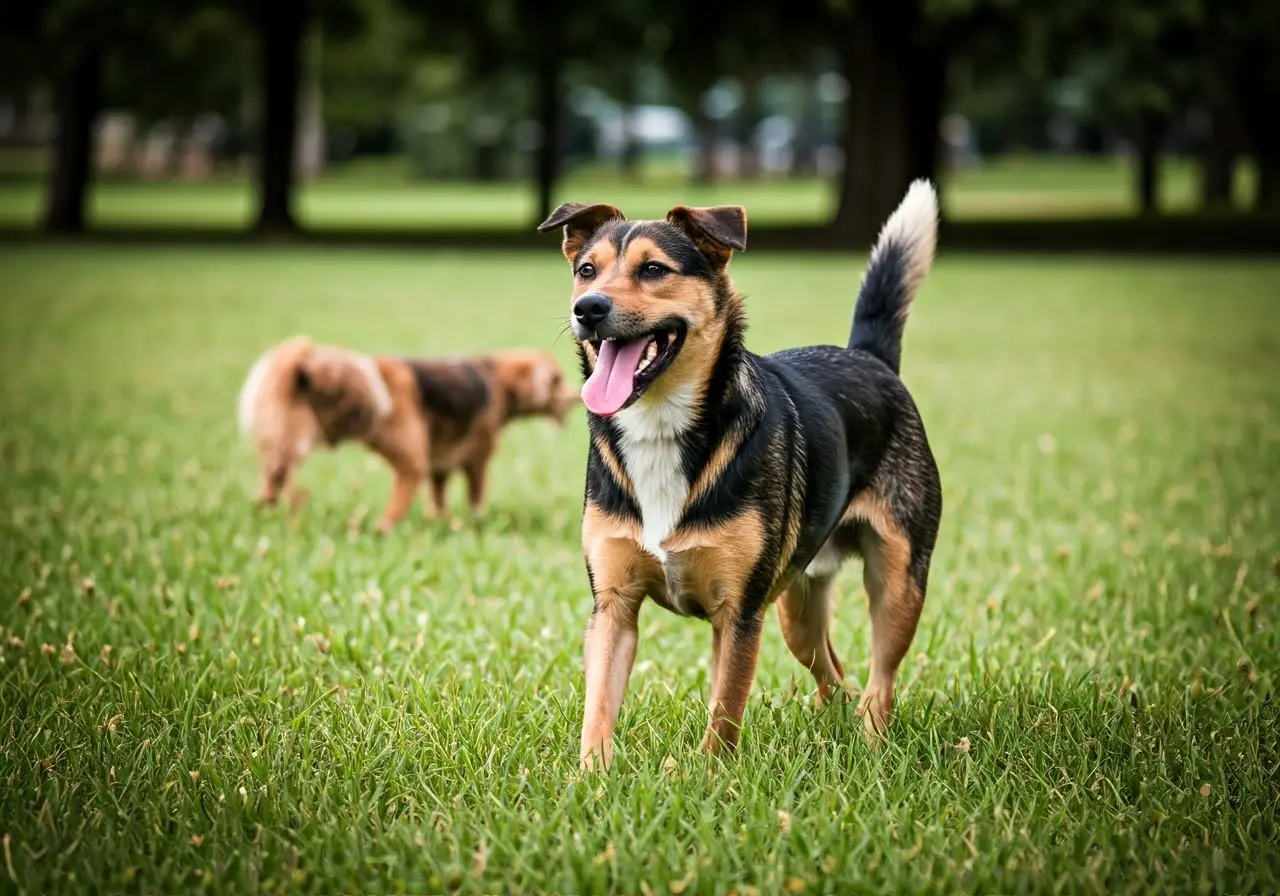Blogs - K9 Obedience LLC: Your Guide to Dog Training and Behavior

How Socialization Helps Prevent Aggressive Dogs
Many dog owners worry about aggressive behavior in their pets and often wonder how they can prevent it. Socialization plays a crucial role in shaping a dog's temperament and can be key in curbing aggression. This blog explores how socialization helps avert aggressive behavior in dogs, offering insights and tips for dog owners.

Understanding Aggression in Dogs
Dog aggression often stems from a combination of fear, inadequate socialization, or negative past experiences. Recognizing the root causes of canine aggression is essential for crafting effective prevention strategies. Frequently, aggression in dogs is a defensive behavior, signaling underlying anxiety or fear. By addressing these motivations, pet owners and trainers can manage and reduce aggressive incidents effectively.
Aggression in dogs manifests in various forms, such as growling, snapping, or biting. Understanding the causes behind these actions—fear, anxiety, or protective instincts—helps us design appropriate intervention plans. Research shows that aggression is a complex behavior influenced by factors like a desire to protect resources, territory, or even oneself. Early and consistent socialization is critical for helping dogs build confidence, which can significantly reduce aggressive tendencies.
What is Dog Socialization?
Dog socialization is the process of exposing dogs to diverse experiences, people, and environments in a positive and controlled manner. Socialization aims to help dogs feel secure, relaxed, and confident in different scenarios, reducing the likelihood of fear-based or defensive behaviors. Proactively introducing dogs to a variety of settings and stimuli can help prevent fear and anxiety, which often lead to aggression.
Socializing a dog means introducing them to new environments and social situations gradually and supportively. Taking your dog to dog-friendly parks, arranging structured playdates, or visiting pet-friendly stores are excellent ways to expose them to different sights, sounds, and people. Controlled socialization builds resilience and adaptability, helping dogs respond calmly and confidently to novel experiences instead of reacting aggressively out of fear.
Benefits of Early Socialization
Early socialization plays a crucial role in developing well-adjusted dogs. Introducing puppies to varied situations and individuals helps reduce fear and anxiety while fostering trust and comfort. Puppies that undergo consistent, positive social interactions are far less likely to develop aggressive behaviors as adults because they learn to approach new situations with curiosity rather than fear.
Research indicates that puppies who miss critical socialization experiences during their socialization period (typically three to fourteen weeks of age) are at a higher risk of developing aggressive behaviors. By exposing young dogs to diverse people, animals, sounds, and environments, they gain confidence and learn to handle new situations with ease. Well-socialized dogs lead richer lives, participating comfortably in family activities without stress or fear.
How to Properly Socialize Your Dog
Start socializing your dog in controlled, low-stress environments and gradually introduce them to more complex situations. Using positive reinforcement (one of the four quadrants of operant conditioning) is key, as it encourages your dog to form pleasant associations with new experiences. Begin with small outings, like short walks in quiet neighborhoods, and then progress to busier areas. This gradual approach allows your dog to build confidence at their own pace, with each positive experience reinforcing their comfort in unfamiliar settings.
Consistency in socialization is essential for lasting results. Regular exposure to different environments and people ensures that your dog retains the social skills they’re learning. Interactions with a variety of individuals and animals—from children to adults, dogs to other pets—build a well-rounded social skill set. These experiences help prevent over-protectiveness or territorial behavior, making dogs more adaptable and friendly.
At Rochester Dog Training Experts, our programs emphasize structured, controlled socialization to foster positive behavior in new environments. Our skilled trainers guide dog owners through effective socialization strategies, ensuring a comprehensive approach to reducing aggression through well-managed exposure and confidence-building.
Addressing Challenges in Dog Socialization
Some dogs may initially resist socialization due to prior fears or anxieties. In such cases, patience and gradual exposure within the dog’s comfort zone are essential. If a dog displays signs of stress—such as yawning, turning away, or freezing—it’s crucial to respect their boundaries. Slowly reintroducing the environment in smaller, manageable steps can help reduce stress over time.
Each dog is unique, and overcoming socialization challenges requires personalized approaches. Observing your dog’s body language and stress signals is crucial in formulating an effective socialization plan. Consulting a professional trainer or behaviorist can offer tailored insights and techniques to suit your dog’s specific needs and personality.
How Operant Conditioning Supports Dog Socialization
Integrating operant conditioning—especially the four quadrants (positive reinforcement, negative reinforcement, positive punishment, and negative punishment)—is highly effective in socialization. For instance, positive reinforcement, such as giving treats or praise when your dog responds calmly, encourages repeated good behavior. Meanwhile, negative reinforcement (like removing a stressful stimulus when the dog relaxes) reinforces calmness in challenging situations. Understanding and applying these conditioning methods ensures a positive and effective socialization process.
The Importance of Socialization in Building Trusting Relationships
Socialization is fundamental in preventing aggressive behaviors and creating confident, friendly dogs. By exposing them to varied environments, people, and animals, pet owners can nurture adaptable and sociable companions. With patience, consistency, and the right training techniques, dog socialization promotes well-being and strengthens the bond between pet and owner. A well-socialized dog is better equipped to enjoy a fulfilling life and participate in family activities without anxiety holding them back.
K9 Obedience LLC, Rochester NY
All Rights Reserved


Facebook